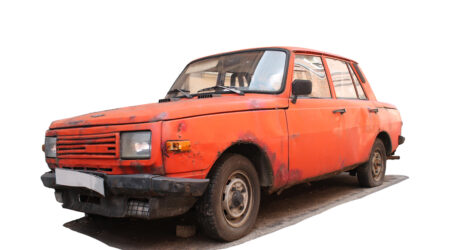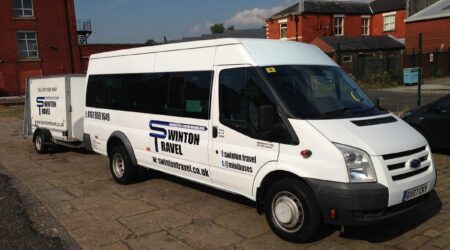Car Wreckers: The Ultimate Solution for Unwanted Vehicles
Owning an old, damaged, or non-functional vehicle can be burdensome. Not only does it take up valuable space, but it can also be difficult to dispose of responsibly. This is where car wreckers come in. Car wreckers, also known as auto dismantlers or salvage yards, offer a practical and eco-friendly solution for getting rid of unwanted vehicles. In this article, we will explore what car wreckers do, the benefits they provide, and how you can make the most of their services.
What Are Car Wreckers?
Car wreckers are specialized businesses that dismantle old, damaged, and unwanted vehicles. They salvage usable parts and materials, which can be resold or recycled. The remaining non-usable parts are disposed of in an environmentally responsible manner. Car wreckers handle all types of vehicles, including cars, trucks, vans, and SUVs.
The Benefits of Using Car Wreckers
- Eco-Friendly Disposal: Car wreckers ensure that vehicles are disposed of in an environmentally friendly way. They recycle metals, plastics, and other materials, reducing waste and pollution.
- Free Towing Services: Many car wreckers offer free towing services, making it easy and cost-effective to get rid of your vehicle.
- Cash Payments: Car wreckers often pay cash for your old vehicle, providing you with immediate financial benefits.
- Space Savings: Removing an unwanted vehicle from your property frees up valuable space.
- Availability of Used Parts: Car wreckers sell salvaged parts at a fraction of the cost of new ones, providing an affordable option for car repairs.
How Car Wreckers Work
Step 1: Contact a Car Wrecker
Start by finding a reputable car wrecker in your area. You can do this through online searches, local directories, or recommendations from friends and family. Provide them with basic information about your vehicle, including its make, model, year, and condition.
Step 2: Receive an Offer
Based on the information you provide, the car wrecker will give you an offer for your vehicle. This offer is typically based on the vehicle’s weight, the value of its parts, and current scrap metal prices.
Step 3: Schedule Pickup
If you accept the offer, schedule a convenient time for the car wrecker to pick up your vehicle. Most services offer flexible scheduling to fit your availability.
Step 4: Prepare Your Vehicle
Before the pickup, remove all personal belongings from your vehicle. Gather necessary documents, such as the title and registration, to transfer ownership.
Step 5: Vehicle Pickup and Payment
On the scheduled day, a representative from the car wrecker will inspect your vehicle to ensure it matches the provided description. Once verified, you will receive your payment, and the vehicle will be towed away.
Step 6: Complete the Paperwork
Complete any required paperwork to transfer ownership of the vehicle. Notify the local Department of Motor Vehicles (DMV) or equivalent authority to avoid future liabilities.
Tips for Maximizing Your Returns
- Get Multiple Quotes: Contact several car wreckers to compare offers and ensure you get the best price for your vehicle.
- Accurate Description: Provide a detailed and accurate description of your vehicle to avoid discrepancies during the inspection.
- Negotiate: Don’t hesitate to negotiate the offer. Some car wreckers may increase their bid to secure your vehicle.
- Check for Hidden Fees: Ensure there are no hidden fees for towing or paperwork. Reputable services should offer these for free.
- Choose Local Services: Local car wreckers may offer better deals due to lower transportation costs and familiarity with local market conditions.
Finding Reliable Car Wreckers
To find a reliable car wrecker, consider the following steps:
- Research: Look for car wreckers with good reviews and ratings online.
- Ask for Recommendations: Seek recommendations from friends, family, or mechanics.
- Verify Credentials: Ensure the car wrecker is licensed and insured.
- Customer Service: Choose a company that provides excellent customer service and clear communication.
Legal Considerations
When dealing with car wreckers, be mindful of the following legal aspects:
- Proof of Ownership: Ensure you have the car’s title or other proof of ownership.
- Remove License Plates: Remove your license plates before the car is towed away.
- Cancel Insurance: Notify your insurance company to cancel the policy on the vehicle.
- Notify DMV: Inform the DMV or equivalent authority about the sale to avoid future liabilities.
Conclusion
Car wreckers provide a valuable service by helping you dispose of unwanted vehicles in an environmentally friendly and convenient manner. By following the steps outlined above, you can easily turn your old car into cash while contributing to recycling efforts. Whether you are looking to free up space, earn some extra money, or responsibly dispose of a non-running vehicle, car wreckers offer an excellent solution.
FAQs
1. What types of vehicles do car wreckers accept? Car wreckers accept all types of vehicles, including cars, trucks, vans, SUVs, and motorcycles, regardless of their condition.
2. How is the value of my car determined? The value of your car is determined by its make, model, year, condition, weight, and the current market value of its parts and scrap metal.
3. Can I sell a car without a title? While having a title is preferable, some car wreckers may still accept your vehicle without one. Policies vary by company and local regulations.
4. Is there a fee for towing my vehicle? Reputable car wreckers typically offer free towing services as part of their package.
5. How quickly can I get my car picked up? Many car wreckers offer same-day or next-day pickup services, depending on your location and their schedule.
6. What happens to my car after I sell it to a car wrecker? Your car will be dismantled, with usable parts salvaged for resale and the remaining materials recycled or disposed of responsibly.
7. Do I need to prepare my car before selling it to a wrecker? You don’t need to make repairs, but you should remove all personal belongings and ensure you have the necessary documents, such as the title and registration.
8. Are there any tax implications when selling my car to a wrecker? In most cases, selling a personal vehicle to a wrecker does not have significant tax implications. Consult a tax professional if you have specific concerns.
9. Can I sell a car that has been in an accident? Yes, car wreckers accept vehicles that have been in accidents. They assess the value based on salvageable parts and scrap material.
10. What should I do with my license plates after selling my car? Remove the license plates and return them to the DMV or transfer them to your new vehicle, as per local regulations.










Leave a Reply